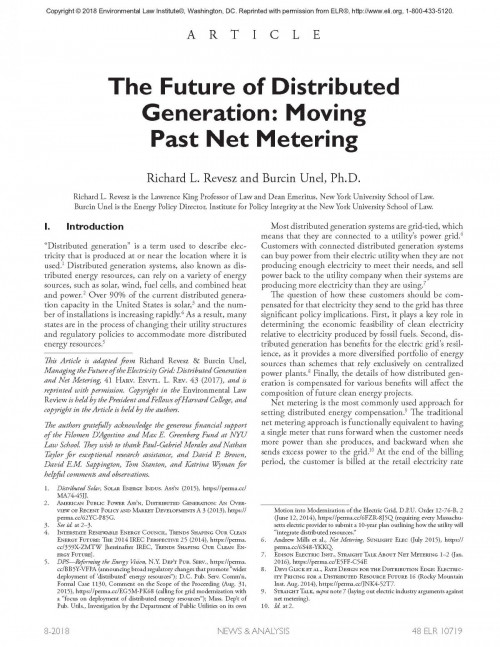As distributed energy generation is becoming increasingly common, the debate on how a utility’s customers should be compensated for the excess energy they sell back to the grid is intensifying. And net metering, the practice of compensating for such energy at the retail rate for electricity, is becoming the subject of intense political disagreement. Utilities argue that net metering fails to compensate them for grid construction and distribution costs and that it gives rise to regressive cost shifting among its customers. Conversely, solar energy proponents argue that the compensation should be higher than the retail rate to account for other benefits that distributed generation systems provide, such as the resulting climate change and other environmental benefits, as well as the savings resulting from not needing to build new installations to provide additional capacity. This ongoing debate is leading to significant changes to net metering policies in many states.
This article provides an overview of the benefits and the costs of distributed generation and highlights the analytical flaws and missing elements in the competing positions and in most existing policies. We propose an alternative approach that recognizes the contributions to the electric grid of both utilities and distributed generators. The article is excerpted and revised from a longer academic article, Managing the Future of the Electricity Grid: Distributed Generation and Net Metering, which was selected by Environmental Law Reporter as one of the five best environmental law articles published in the 2016-2017 academic year.

